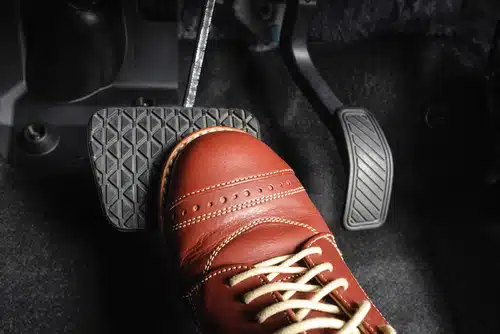Home » Blog » Pet » Pet Health & Safety » Dog DNA Test: How It’s Done and What to Expect
Categories
Tags
animal welfare
breed profile
buying a car
buying a pet
Car
car accessories
car care
car features
car insurance
Car safety
car sales
car service
cat
cat behaviour
cat body language
Cat Breeds
cat food
cat insurance
comprehensive car insurance
Dog
Dog Behaviour
dog body language
Dog Breeds
dog food
Dog Insurance
dog training
eco friendly cars
Kitten
New Car
pet accessories
pet activities
Pet Adoption
pet breeders
pet days of the year
pet fun stuff
Pet Health
pet insurance
pet parenting
Pet Safety
pet services
Puppy
rescue pets
road safety
road trip
safe driving
Recent Blog:
Facebook Posts
2 days ago
Growing old sometimes means we can’t take care of pets anymore. Find out some advice on what to do when this happens:![]()
![]() Senior Pet Parents – Contingency Plans for Your Pet – bit.ly/44bzwkS
... See MoreSee Less
Senior Pet Parents – Contingency Plans for Your Pet – bit.ly/44bzwkS
... See MoreSee Less
Senior Pet Parents' Contingency Plans for Pets
www.pd.com.au
Sometimes senior pet parents need more downtime. For older pet owners, this can be tricky to navigate if their dog or cat is full of beans and wants to4 days ago
Before you rev up the engine, let’s run through a checklist of things to do before starting your car. Not only do these steps ensure your safety (and that of others around you), but they also help in maintaining your vehicle's longevity.![]()
![]() Driving Tips: Your Checklist Before Starting Your Car -
... See MoreSee Less
Driving Tips: Your Checklist Before Starting Your Car -
... See MoreSee Less
Driving Tips: Your Checklist Before Starting Your Car
www.pd.com.au
Heading out for a drive? Hold up a second! Whether you're dashing off to work, running errands, or embarking on a road trip adventure, there are a few1 week ago
Are intestinal worms setting up camp in your dog’s gut without paying rent? Here’s how to spot the main culprits and get rid of them too:![]()
![]() Preventing, Identifying and Treating Intestinal Worms in Dogs - bit.ly/43YjCKu
... See MoreSee Less
Preventing, Identifying and Treating Intestinal Worms in Dogs - bit.ly/43YjCKu
... See MoreSee Less
Preventing, Identifying and Treating Intestinal Worms in Dogs
www.pd.com.au
Intestinal worms, such as roundworms in dogs are one of the least glamorous topics on the planet. These intestinal parasites that basically use our dogsThe dog DNA test (also known as dog genetic testing) is fast becoming one of the hottest discussion topics between dog parents during playtime catch ups. Owners of pedigree and purebred dogs do it to reassure themselves on their purchase, parents of mixed breeds do it so they can uncover their fur kids origins and breeders do it for health testing reasons. Not everyone does, of course, but plenty do!
As avid dog lovers and attentive dog parents, it stands to reason we’d want to know everything there is to know about dog DNA tests. For example, how accurate is it, how does it work, how much does it cost and every other arcane detail we can hope to discover.
Here’s the inside scoop on exactly what you need to know.
In this article

What is a dog DNA test?
Dog DNA tests use a scientific approach to unpack which breeds make up your pup’s genetic code. Not only that, but DNA testing can also reveal potential health risks that your furry pal might face down the line (more on that below). Until recently, this type of information was generally only available for purebred dogs whose bloodline is documented by breeders.
PS: Find out the difference between pedigree vs purebred.
Now, using a simple cheek swab, any dog can have their breed mixture assessed in a lab. If you have a shelter dog or you simply don’t know anything about your fur kid’s breed (or maybe you have a suspicion), you can have this confirmed. Well, sort of…
Why’s that? It’s worth noting that DNA testing in dogs is still fairly new and industry regulations are still being established. So, while results offer up some incredible insights into your pup’s provenance, health risks and traits, whether results are 100% bona fide is ultimately up to you to decide.

DNA testing for diseases
Besides being a fun and interesting way to see what breed(s) your pup is, dog DNA testing is a valuable tool for understanding their health risks and inherited diseases. It lets you gather important information early on, so you can take steps to prevent or manage potential health problems.
Early detection and prevention are super important because certain diseases can be more effectively managed or even prevented when found early. By understanding a dog’s genetic predispositions, you can work with your vet to develop the right health plans and precautions. We delve more into this topic in our article: Dog DNA Test Australia – Can It Prevent Hereditary Dog Diseases?
Some health conditions that can be identified through DNA testing include hip dysplasia and progressive retinal atrophy (PRA) – an inherited eye disorder leading to vision loss. It can also help reveal genetic markers associated with heart diseases, kidney disorders, skin conditions, and neurological disorders.
The chair of our NZ vet partner, Healthy Pets NZ, is Dr Cath Watson and in the video below she talks about DNA testing for a specific disease:
How do you get your dog DNA tested?
Most dog genetic tests are available for online purchase so you can take the sample swab of dog saliva at home then post it to the lab. Some can also be done at the vet just as easily, which means you won’t have to post the test swab back to the lab.
Here’s a step-by-step outline of how the process is done for most tests:
- Purchase your dog DNA test online (here’s a selection of tests from Off the Leash)
- Register an online account through the company’s website
- Check that the kit you receive includes instructions, a swab, swab bag and a pre-paid return envelope
- Take a swab of saliva from your dog’s cheek. Watch this how-to video
- Let the swab dry, then seal it up and post it
- Your results will be uploaded to your online profile between two and three weeks from when they receive your swab. Some companies email your report back
Voila! You’re ready to print out your report and tell your fur kid’s loved ones. Besides making for an interesting conversation piece, you can share your report with your vet. Depending on which breeds make up your dog’s genetic material, this can hold valuable insights into your dog’s health and temperament.
Want to know more about breeds? Read up on the kindest dog breeds, Australia’s top dog breeds, and the best small dog breeds for apartments.
How much is a dog DNA test?
Ah, the big question! Tests run the gamut from as little as $80 to as much as $280. The pricier tests offer a more comprehensive unpacking of DNA analysis and work with larger doggy DNA databases.
The bigger the database, the more samples your dog’s DNA can be cross-referenced against, giving you a fuller picture of their breed makeup. To give you an example, some tests only reference a gene pool of 62 dog breed types, while others have a genetic database of more than 350 breeds.
So, say for argument’s sake, your dog is part Husky. But your dog DNA test laboratory doesn’t have Husky DNA in its database. That then means you’ll be missing that valuable information in the results you receive.
How reliable are dog DNA tests?
Your pup’s test results are run through a detailed analysis with the various parts of the DNA cross referenced against all the dog breeds in the database. Of course, this means the company with the biggest breed database can offer the most comprehensive test results.
Some tests claim they can detect a dog breed in your dog’s DNA if it makes up as little as 5% of their DNA. At any rate, most breed databases are added to on an ongoing basis. This means that over time the tests will become more and more comprehensive.
However, at this stage without any regulations, there’s no way to guarantee results are accurate. Cheeky Buzzfeed sent human DNA to a dog DNA centre in the US a couple of years ago. Here were the results …
What can you expect from the test?
Tests vary in what they offer, from breed information to bonus information like what your dog’s ideal weight and health plan ought to be.
Here’s a collection of info on offer from various dog DNA tests on the market:
- DNA databases from 62 breeds to over 350 breeds
- Family tree
- Canine genetic relative finder
- Research surveys
- 20 possible traits
- Up to as many as 200 + possible health risks
- Inbreeding score
- Weight indicator
- Health plan
Also, if you take a test that tells you if your dog has family members on their database, you could end up being able to meet your dog’s siblings or parents or in-laws!

Why test your dog’s DNA?
For most canine parents, testing is fun because you get a certificate that describes your best friend’s legacy. Another great outcome is that, with the testing providing a deeper insight into your pup’s breed mix, you can then explore what health conditions it might be more prone to.
Maybe you discover pup has a German Shepherd grandpa or an English Bulldog great grandma. You and your vet can use these genetic markers to pre-empt likely health problems before they occur.
This gives you the leading edge in a comprehensive approach to your pup’s overall health. Because you can up your game plan with a proactive approach to their diet and fitness regime.
If you do the test when pooch is still a puppy you also stand of chance of better predicting how big they’ll grow. This might prove useful when you’re buying a dog bed or travel crate (see our travelling with pets tips here), so you can get the right size at the outset.
Not interested in doing dog genetic testing, but still want to know how big puppy will grow? Read our article on dog size.
Read more interesting articles from our comprehensive blog:
- Vet Bills in Australia Are Expensive – True or False?
- How to Be a Pro Puppy Parent: Choosing, Buying and Planning
- 5 Assistance and Guide Dog Breeds with Pics
- Staffy Breaks Aussie Record with 22 Puppies
- Pet Plan Shopping in Australia: What You Need to Know
Dog insurance for all kinds of DNA
Another comprehensive approach to caring for your dog’s health is dog insurance, which takes the bite out of pet health costs. No matter what their breed. Besides being super affordable and potentially saving you thousands in vet care, you can choose between three plans with three different defined benefit limits.
Bonus: PD Insurance plans feature third party liability cover (as long as your pet doesn’t have a history of aggression). So, if pup eats your best friend’s cushions on a doggy playdate – or worse! – we’ll help cover your costs.
Share On:




